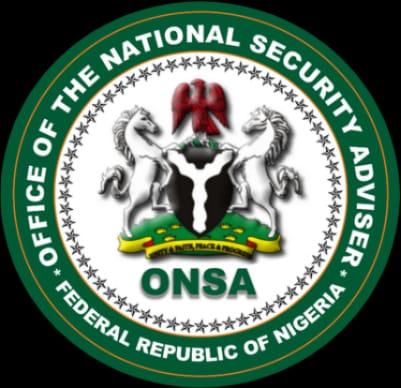By Abu, I. Michael
There is an inaudible fete among government officials, the leadership of Nigeria’s financial sector and the international community over the country’s progress in its efforts against money laundering and terrorism financing and to meet the standards of the Financial Action Task Force (FATF). The FATF is the world standard-setting intergovernmental Organisation for anti-money laundering and counter-terrorist financing (AML/CFT). The FATF had included Nigeria on its grey-list in 2023 due to deficiencies in combatting money laundering, terrorism and arms financing.
Terrorism remains a global threat, responsible for the death of thousands of innocent lives. Since 2009 Nigeria has made significant strides against non-state armed groups such as Boko Haram, the Islamic State of West Africa (ISWAP) insurgents and other armed bandits, including kidnappers whose damning activities have continued to adversely affect economic growth and overall well-being of Nigerians, especially in the North East and North Western States of Nigeria.
Finance no doubt remains the nucleus, the lifeblood for terrorist groups and other violent extremist cohorts. Terrorism financing (TF) is a global menace that poses a significant threat to security, hinders economic development, and undermines financial market stability. Terrorism Financing involves the raising, processing, movement and utilisation of funds and other assets to support terrorists. TF often exploits the same vulnerabilities as money laundering in financial systems that allow for an inappropriate level of anonymity and opacity in the execution of financial transactions. As such, the role of finance in terrorism cannot be underestimated. Without a steady flow of funds, terrorist organizations would struggle to sustain their operations as they rely on financial resources to acquire weapons, equipment, supplies, and services. Additionally, funds are crucial for maintaining their camps, supporting their members, and planning & executing attacks.
While successive governments have waged wars against terrorism, the recent success story against terrorism and violent extremism in Nigeria demonstrates the effect of Cooperation, Collaboration and Coordination amongst relevant agencies, as well as underscores the genuine commitment of the Administration of President Bola Ahmed Tinubu GCFR in curbing terrorism and sustaining an atmosphere of safety for Nigerians.
Under the watch of the National Security Adviser, Mallam Nuhu Ribadu, the National Coordinator of the National Counter Terrorism Centre (NCTC), Office of the National Security Adviser (ONSA), Major General Adamu Garba Laka and the Director/CEO of the Nigerian Financial Intelligence Unit (NFIU), Hajiya Hafsat Bakari have been effective propellers in the concerted efforts yielding results in the country’s confrontation with terrorists and other non-state armed groups. NCTC and NFIU have sustained collaborative efforts, working on cutting off the finances and funding of these criminal groups and individuals to disrupt their activities and networks; the recent conviction of individuals linked to terrorism financing at the just-concluded trials of terrorists as well as the progress made in implementing the country’s action plan to exit the grey list gives credence to this fact.
Countries who find themselves on FATF Grey-list, work assiduously to exit the list because of the dire implications on a Country’s Economy and Financial Transactions. Failure to implement FATF recommendations will lead to a country getting on the blacklist which has more daring consequences. Foreign investors may view such countries as high-risk, leading to capital flight and reduced foreign direct investment. Bretton Woods institutions or international lenders (IMF, World Bank, ADB) may impose stricter conditions or higher interest rates on expected loans; and international banks and financial institutions may limit transactions with entities in the grey-listed country, making trade more expensive.
Other concerns are that banks of countries on FATF’s blacklist often face increased scrutiny, requiring more stringent anti-money laundering and counter-terrorism financing (CTF) checks; international banks may cut off or reduce correspondent banking relationships, affecting remittances and cross-border payments; financial establishments from other countries may avoid doing business with entities from a grey-listed nation to avoid regulatory risks. The domestic impact is that the circumstance may cause foreign capital outflows to increase and currency depreciation leading to increased inflation. Companies reliant on international transactions may also face delays, higher costs, or loss of business opportunities.
Grey-listed countries must commit to strict FATF action plans, requiring legal, regulatory, and enforcement reforms; and failure to comply with FATF’s recommendations can result in being moved to the black list, and the consequences include severe economic sanctions.
With the significant progress made through the joint efforts of the NCTC and NFIU in the fight against money laundering and terrorism financing, Nigeria is certain to exit the FATF’s grey list within the shortest possible time. The mitigation strategies deployed through NCTC and NFIU collaborative efforts include the establishment of a terrorism financing standing committee and task force made up of representatives of relevant authorities, which is trained and being retrained to consistently improve and sustain the tempo in snipping the financial conduits and networks of terrorists and their collaborators.
Michael is Head, Strategic Communication, National Counter Terrorism Centre, ONSA, Abuja





